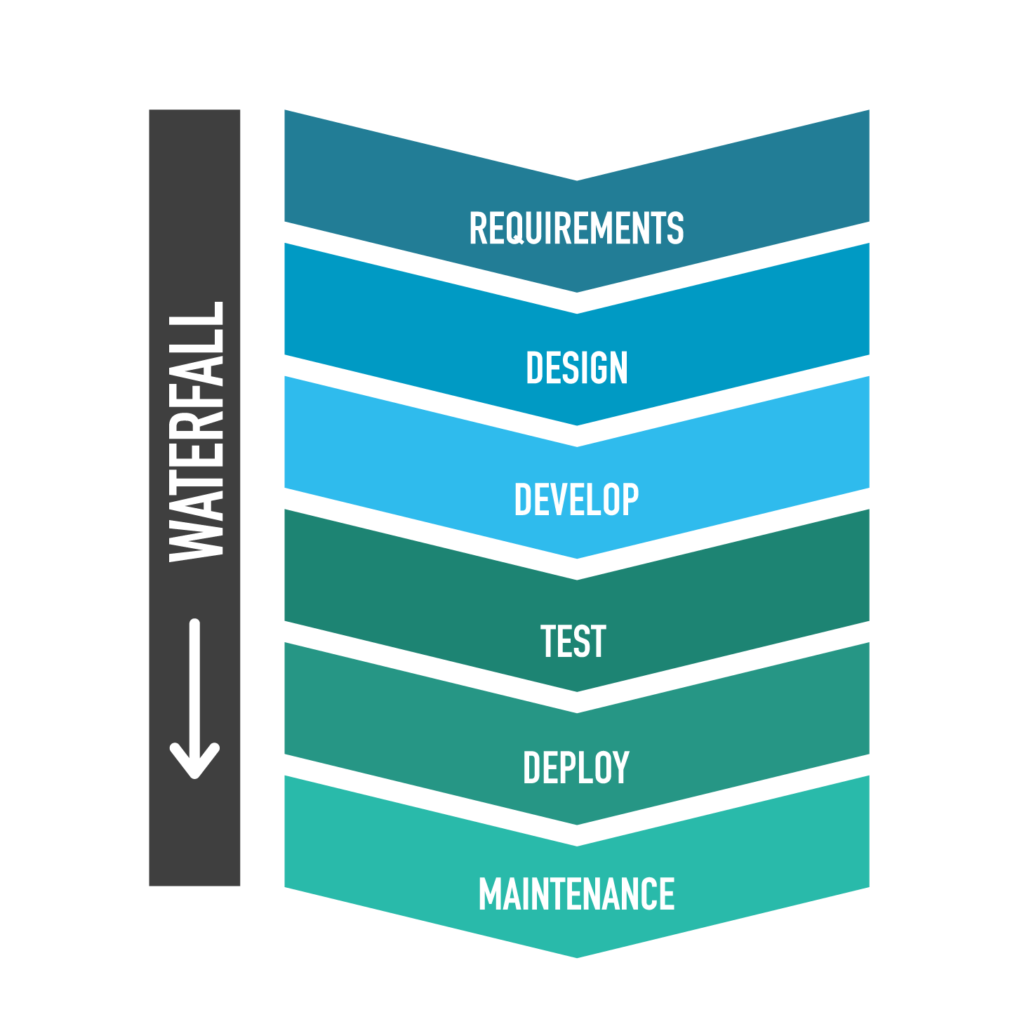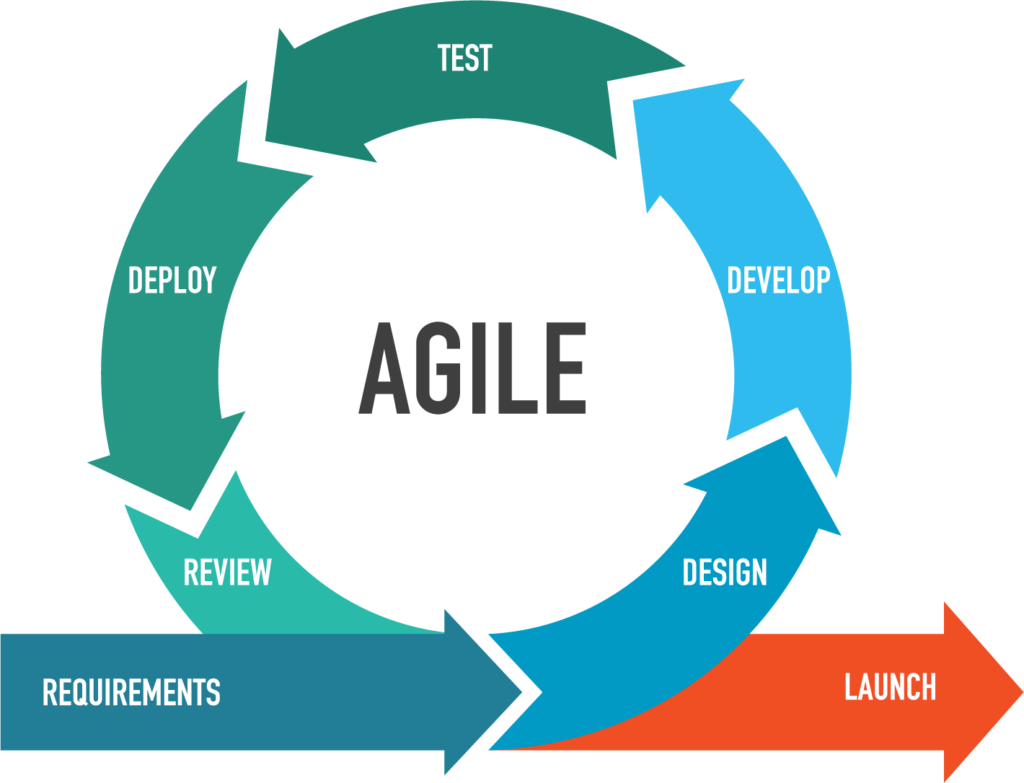Agile vs Waterfall: Best for ERP Projects?

What is the best project management methodology for ERP projects? The answer is: It depends. Most often, however, ERP implementation projects benefit more from using agile project management techniques over the traditional waterfall methodology.
Waterfall: the tradition in project management

Waterfall is a project management technique that relies on comprehensive requirements gathering up front. Once the requirements are agreed upon, design and planning follow. The project plan sets out the timeline and milestones, while the design ensures that all stated requirements will be met. The plan is executed and, once completed, tested and implemented into production. The final product is checked against whether or not it satisfies the stated customer requirements, not whether it actually provides the value the customer was expecting when the project started months before.
Often, it is not until the later stages of the project that the client re-enters the picture to evaluate how well the implementation is going. If there is a problem, if certain requirements have changed or been eliminated, or if other requirements have been added, it is typically too late at this point to introduce significant design changes, and the client must wait for a subsequent release to include the changes or agree to a later project completion date.
Agile: an adaptable alternative

Agile is a project management technique that also relies on comprehensive requirements gathering and design, but divides the project plan into short intervals called sprints. At the end of each sprint, the customer and project team meet to discuss if requirements have changed and if problems have arisen that might jeopardize the project completion time. This allows the design and implementation to rapidly adapt to changing business requirements and allows the client to be involved in each phase to approve any changes or schedule variances.
When one considers that a major implementation can take several months, it is certainly within the realm of possibility that the business requirements – or even the business itself – might have changed from January when the project was in the planning stages to July when the project is nearing completion. Traditional waterfall projects would not account for these changing requirements until late in the development and implementation phase, where such changes become expensive and time consuming. Agile, on the other hand, would handle those changes immediately, before development went very far down the road. If it becomes necessary to slip the delivery schedule, updated timelines would be furnished, but agile projects typically have much less development times compared to similar waterfall projects because of the way they can capture changes and adapt to them quickly. This aspect also results in lower overall costs for the development cycle.
Ultimately, the goal of any software project is not to “finish on time and under budget,” as many might assume—the goal of a software project is to add business value to the client. This is especially true for ERP implementations.
Waterfall projects run the risk of implementing a product that meets the original requirements, but does not take into account that the requirements may have been incomplete (key stakeholders were overlooked) or that the requirements may have changed over time. So, even if the project was run properly, the end product may lack the business value that the client was not only expecting but requires.
In nearly every ERP implementation, the agile project management approach will be more responsive to changing customer demands, allowing the project team to adapt more quickly to new and changing requirements, reducing impacts to the timeline and budget by reducing rework, and involving the client at regular intervals throughout the project, instead of at the end when the project goes live.
If you’d like to learn more about how your next implementation can benefit from agile project management, talk to ArcherPoint’s agile experts by contacting us today.
